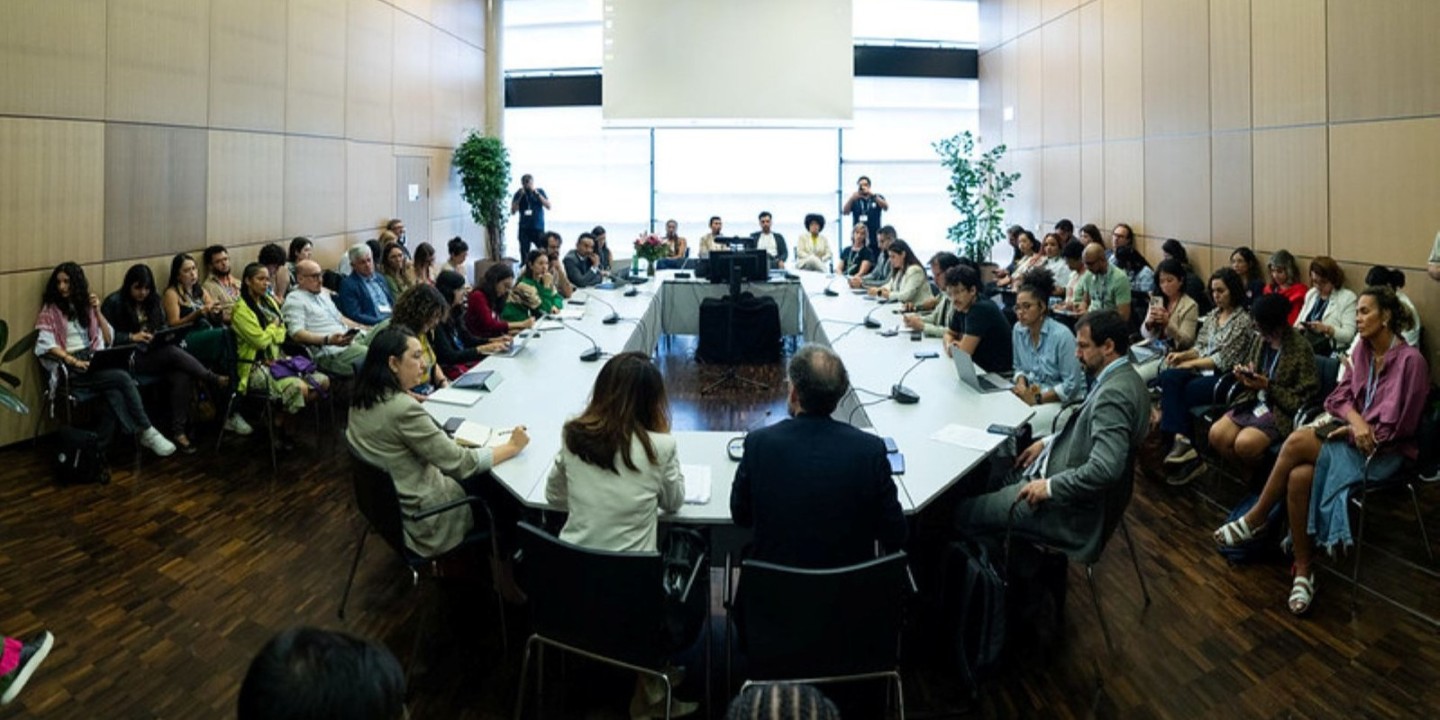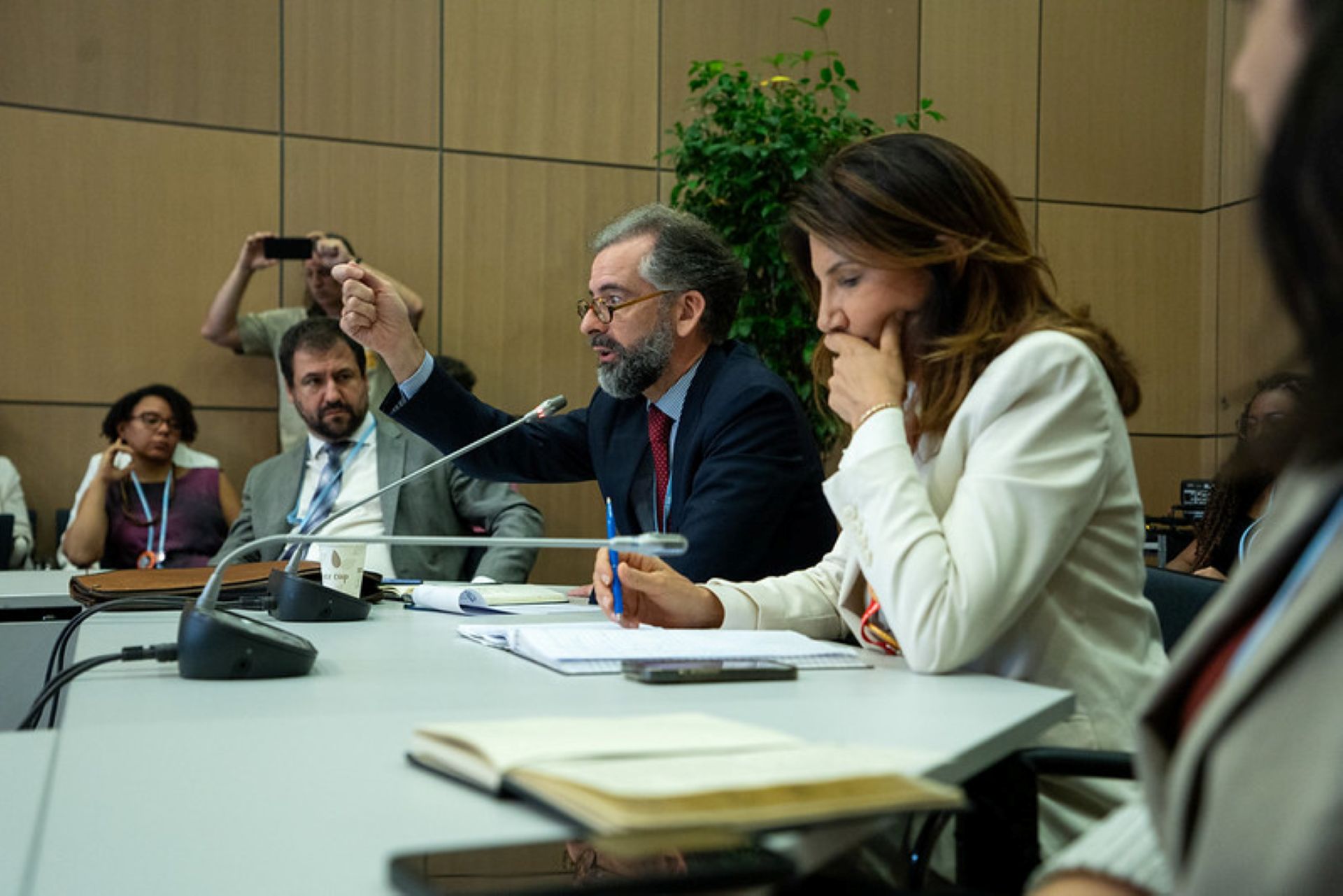Brazilian civil society debates strategic agenda with COP30 Presidency in Bonn
A meeting at the UN climate event in Germany gathered organizations such as Observatório do Clima, Geledés, and SOS Mata Atlântica, aligning their climate priorities ahead of the upcoming conference in Brasil

On Saturday, June 21, a pivotal dialogue took place between the COP30 Presidency and Brazilian civil society organizations, clarifying the country's agenda for the upcoming Climate Conference. The meeting took place in Bonn, Germany, where Subsidiary Bodies of the United Nations Framework Convention on Climate Change (UNFCCC) are holding an event until June 26.
Representatives from notable organizations, such as Geledés – Instituto da Mulher Negra, Observatório do Clima, Instituto Regenera, FASE, Instituto Alana, Comitê COP30, Plataforma Cipó, Instituto Mapinguari, SOS Mata Atlântica, and Grupo Carta de Belém, outlined critical issues that should be addressed in the conference's action agenda in Brasil.
Among the most pressing topics were climate financing models that consider the realities and needs of communities affected by the climate crisis and move beyond the traditional logic of private resources. Adaptation, a stated priority for the COP30 presidency, was also highlighted. The groups also emphasized the cross-cutting inclusion of children and adolescents in conference debates, as well as the promotion of agroecology and the urgent matter of demarcating Indigenous lands.
The groups also underscored the importance of incorporating the unique needs of traditional peoples and communities into the action plan. There was a strong call for greater Indigenous participation in climate decision-making spaces as active negotiators, enabling them to contribute their knowledge and solutions rooted in their lived experiences.
COP30 CEO Ana Toni, along with Ambassador Mauricio Lyrio, the Secretary of Climate, Energy, and the Environment at the Ministry of Foreign Affairs (Ministério das Relações Exteriores/MRE), addressed the concerns raised. They both emphasized the commitment of the COP30 Presidency and the Brazilian government to advancing climate negotiations, despite the challenging international landscape marked by continued reliance on fossil fuels.

"We want a strong strategy on issues that are very important to us, but without disrupting the system," Ms. Toni stated, urging global civil society to engage and encourage countries to submit their Nationally Determined Contributions (NDCs). The deadline for these submissions was in February of this year, and the COP30 presidency hopes that countries will deliver the documents by October at the latest.
The world of work — artificial intelligence
Discussions also explored the green economy, the relationship between energy transition and the world of work, and the creation of green jobs. These topics are fundamental to Brasil's agenda. Furthermore, participants discussed the necessity of rethinking Brasil's strategy for using renewable energy to power artificial intelligence (AI) data centers and other emerging technologies.
Concerning the subject, Mr. João Brant, the Secretary of Digital Policies at the Social Communication Secretariat of Brasil's Presidency (SECOM/PR), elaborated on its plan to promote AI in the country. He stated that the incentive policy aims to balance the use of energy and water resources by data centers.
"It's something that is still being adjusted, which creates tension because it establishes a commitment between multiple parties," Mr. Brant explained. "But I think we will achieve a positive final result."
English Version: Trad. Bárbara Menezes
Proofreading by Enrique Villamil
